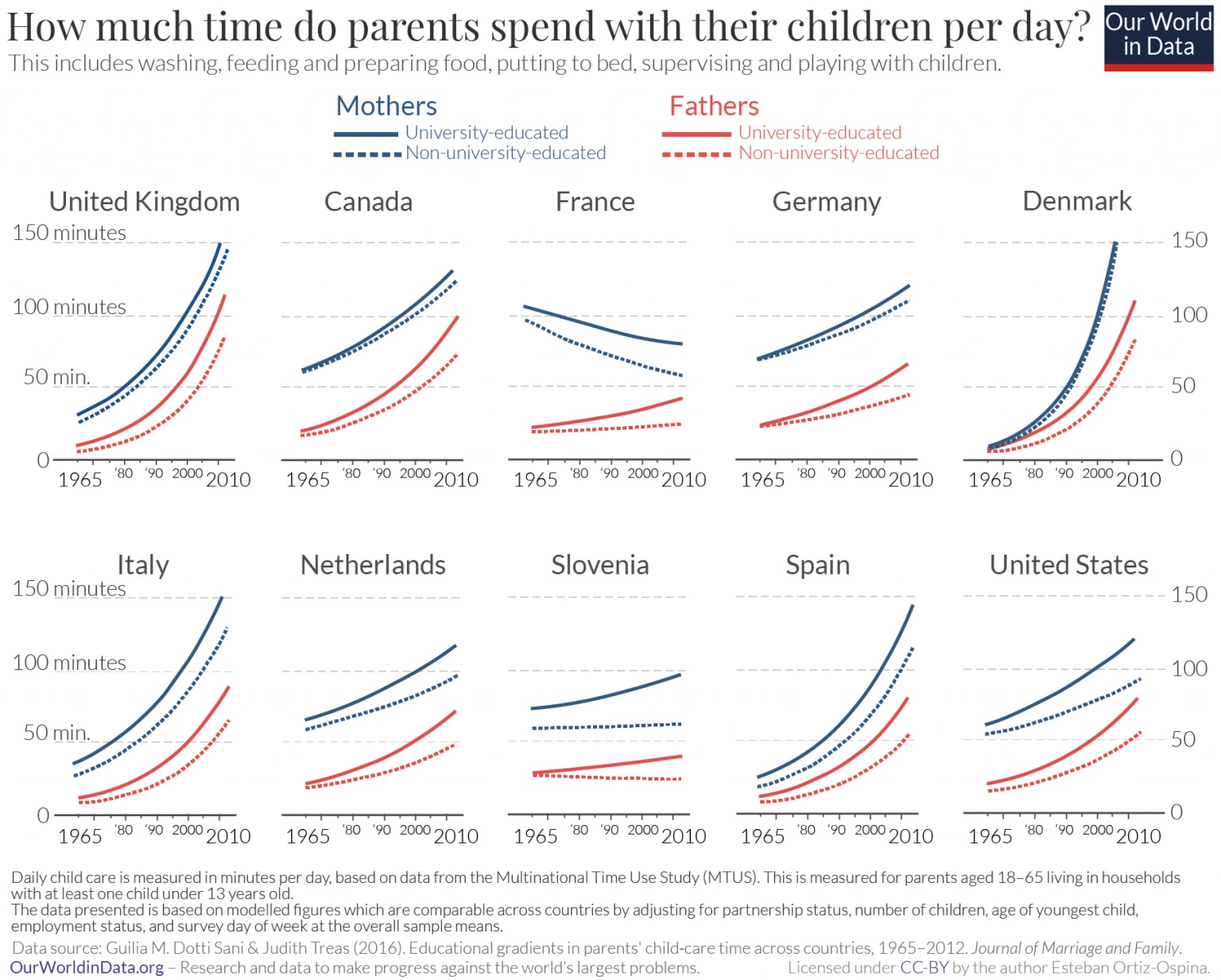Raising children on the eve of AI
Cross-posted with light edits from Otherwise. I think of us in some kind of twilight world as transformative AI looks more likely: things are about to change, and I don’t know if it’s about to get a lot darker or a lot brighter. Increasingly this makes me wonder how I should be raising my kids differently. What might the world look like Most of my imaginings about my children’s lives have them in pretty normal futures, where they go to college and have jobs and do normal human stuff, but with better phones. It’s hard for me to imagine the other versions: * A lot of us are killed or incapacitated by AI * More war, pandemics, and general chaos * Post-scarcity utopia, possibly with people living as uploads * Some other weird outcome I haven’t imagined Even in the world where change is slower, more like the speed of the industrial revolution, I feel a bit like we’re preparing children to be good blacksmiths or shoemakers in 1750 when the factory is coming. The families around us are still very much focused on the track of do well in school > get into a good college > have a career > have a nice life. It seems really likely that chain will change a lot sometime in my children’s lifetimes. When? Of course it would have been premature in 1750 to not teach your child blacksmithing or shoemaking, because the factory and the steam engine took a while to replace older forms of work. And history is full of millenialist groups who wrongly believed the world was about to end or radically change. I don’t want to be a crackpot who fails to prepare my children for the fairly normal future ahead of them because I wrongly believe something weird is about to happen. I may be entirely wrong, or I may be wrong about the timing. Is it even ok to have kids? Is it fair to the kids? This question has been asked many times by people contemplating awful things in the world. My friend’s parents asked their priest if it was ok to have a child in the 1980s given the risk of

>acne/eczema/dry skin on people's faces after being exposed to this
UVA and UVB are used to treat eczema, not sure if UVC has any effect.